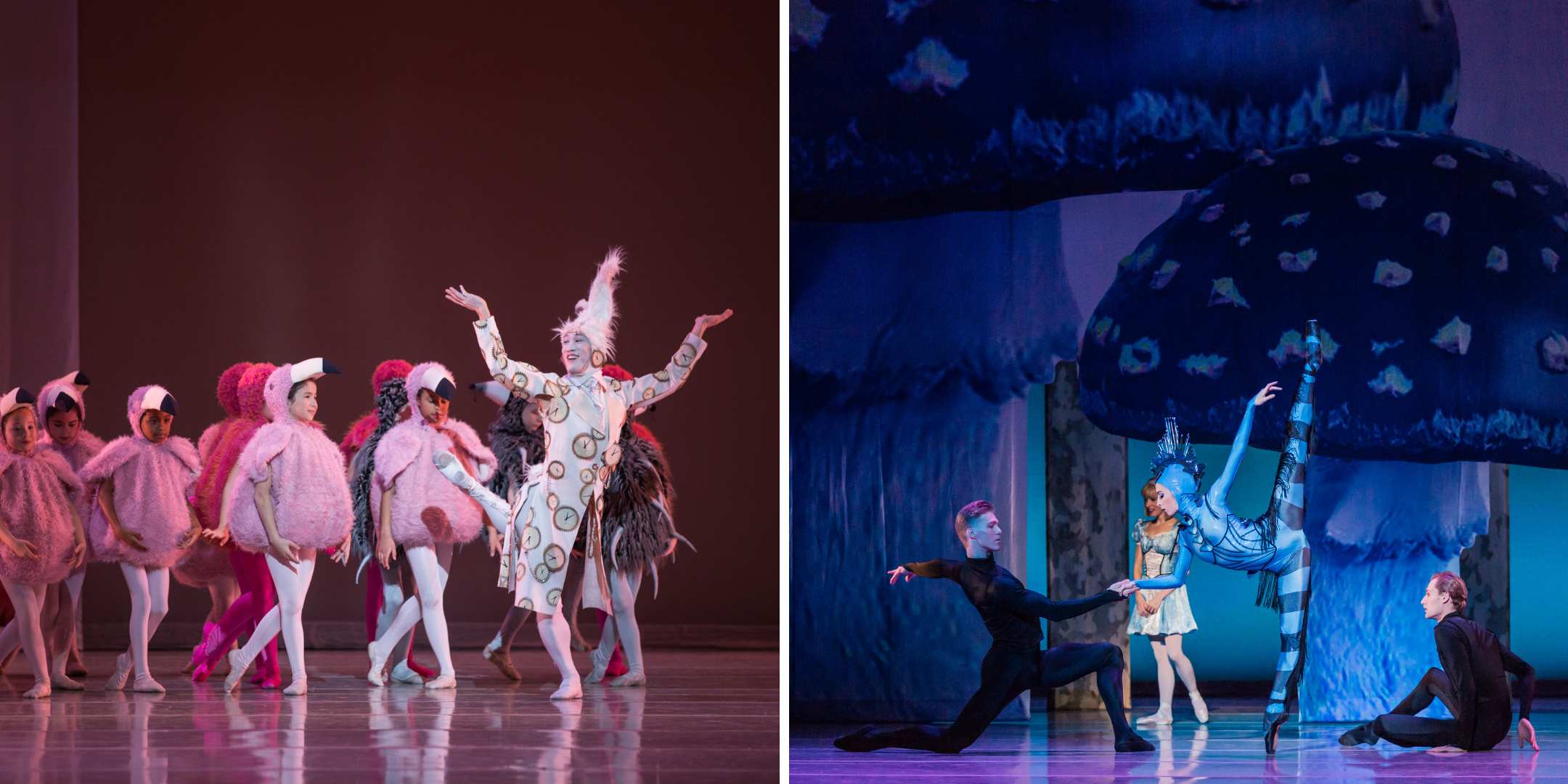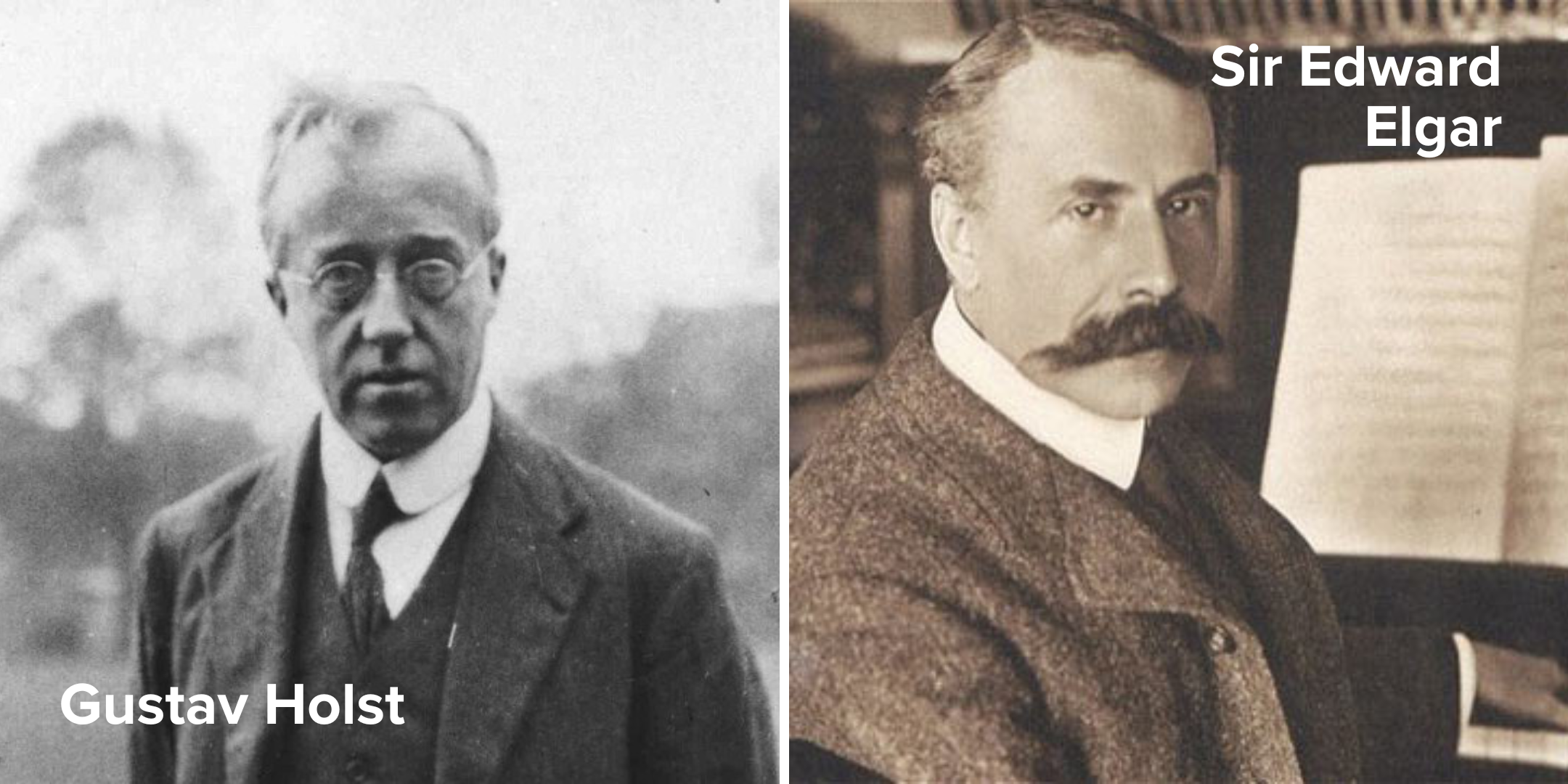The Alice in Wonderland-based ballet includes some of the most beautiful music, from some of the most talented composers, blended together to help tell the classic tale.

Edwaard Liang’s Alice is coming back to Columbus to the Ohio Theatre on February 9-11! The “live” flamingos, the legendary tea party, and the fantastical magic awaits. But what will the journey sound like? Read more below about how the Alice in Wonderland ballet music came to be.
Go Back in Time – The Origins
The music for ALICE is composed of different pieces by the artists Gustav Holst and Edward Elgar. Their work and legacy have made them some of the most prominent English composers of the early 20th century.
Gustav Holst
Born on September 21, 1874, in England, Holst was a pioneering British composer. You may have heard of one of his most popular works, his orchestral suite “The Planets.” Holst displayed musical aptitude from an early age, studying at the Royal College of Music in London.
He drew inspiration from a variety of sources, including English folk music and Eastern mysticism. Holst’s compositional style evolved over time, influenced by his interest in astrology, theosophy, and Hindu philosophy.
While “The Planets” remains his most famous work, Holst also composed numerous other pieces, including ones you’ll hear in Alice! Out of the sixteen pieces included from Holst, only sections from three of the “planets” are included in the production. Those three are Mars, Venus, and Jupiter.

SIR Edward elgar
Sir Edward Elgar was born in 1857, in Broadheath, England. Growing up in a musical family, Elgar was largely self-taught in composition and gained recognition for his early works.
His breakthrough came with the “Enigma Variations,” a composition that showcased his mastery of orchestration and thematic development. Elgar’s quintessentially English compositions, such as the “Pomp and Circumstance” marches, deeply resonated with his contemporaries and continue to be widely acclaimed.
Elgar was knighted in 1904. Despite facing personal and financial challenges, he left an enduring legacy and body of work that remains integral to the British classical repertoire, with his music often evoking a sense of national pride in England.
Blending it All Together – The Compilations & Editing
In musical works, a “compilation” refers to a collection or assembly of previously recorded or existing musical pieces gathered together into a single album, playlist, or other format. It typically involves selecting and organizing individual tracks to create one cohesive collection of works.
Editing, on the other hand, refers to the work of making alterations or adjustments to a recording, which may include cutting, splicing, or manipulating a work.
The music in Edwaard Liang’s Alice was compiled and edited by Oliver Peter Graber.
Listen to the music from Alice below. Alice opens at the Ohio Theatre on February 9. Get your tickets today!

